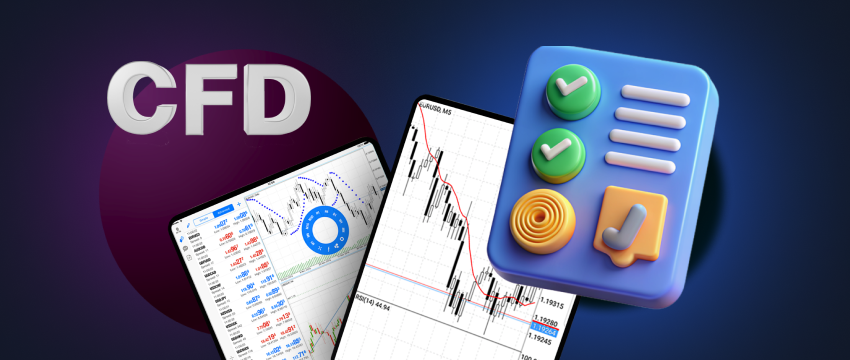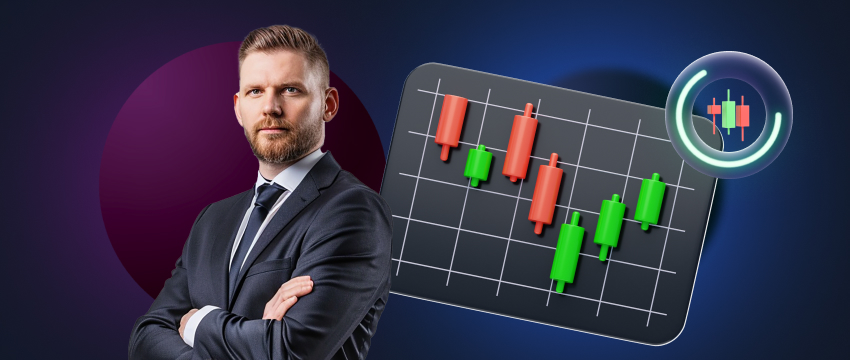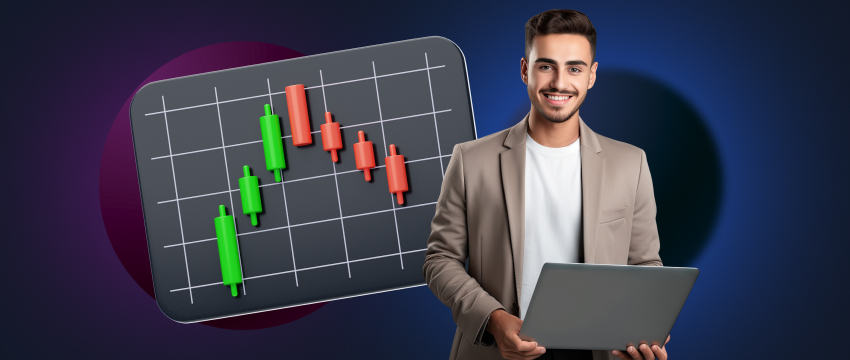CFDs and futures allow trading across various financial markets, including bonds, indices, shares, forex, commodities, and more. Compared to directly trading futures, CFDs often offer greater flexibility.
You can trade CFDs on future prices as well as spot prices with a lot of online brokerages. Trading CFD futures is similar to trading futures in the underlying market. The difference is that you speculate on price movements without taking on futures contract liabilities.
Each of these trading methods has a distinct set of characteristics that influence how they operate and the advantages they offer to traders, which might considerably alter your trading experience.
In order to clarify the distinctions between futures and CFDs, let’s examine each one separately.

About CFD trading
Contracts for difference, or CFDs, are financial derivatives that let you go long or short on an underlying market without actually buying or selling the asset you’re trading. Rather, you trade a contract that replicates your preferred market.
The term “contracts for difference” refers to the way CFDs operate, meaning that you enter into a contract and agree to exchange the difference between the opening and closing prices of an asset.
Trading CFDs allows you to trade thousands of instruments without ever possessing them, as they always replicate exactly the price movements of the underlying market.
When you purchase a CFD, you pay for any downward price shift in your market as a loss and exchange any upward price shift as profit. But you can also sell CFDs because you don’t own the asset.
CFD Leverage as an advantage
Leverage is one of CFDs’ main advantages. When you trade a contract for difference, you don’t need to pay the full value of your position upfront. Instead, all you need to do is make a margin deposit into your account. This lets you allocate capital to other investments.
Let’s say you purchase an ExxonMobil CFD at $100 and sell it at $120. You can swap the $20 price difference using your CFD, which will give you the exact same profit as if you had purchased the share through a broker. You still exchange the price difference if ExxonMobil drops to $80, but this time you have to pay your provider. This indicates a $20 loss for you.
This operates similarly to trading ExxonMobil shares through traditional investment methods, as you may have noticed. That’s intentional. The goal of a CFD is to function similarly to its underlying, serving as the closest thing to trading the markets without actually purchasing and holding stocks, commodities, currencies, and other assets.
About the futures
Financial contracts, known as futures, require a buyer and seller to commit to exchanging an underlying market at a predefined price at a later time. When two parties enter into a futures contract, the seller agrees to sell the underlying market at the agreed-upon price at or before the contract expires, and the buyer agrees to purchase it.
Traders often use futures as a hedge against expected increases in an underlying market’s price. For instance, in order to hedge against the potential rise in fuel prices, airlines may purchase oil futures. This is so that airlines can lock in a price when they purchase oil futures, knowing that it will not fluctuate even if the price of oil increases in the underlying market.
With futures, the terms of a trade are established long in advance of the actual trade. Initially, futures were first used by manufacturers and buyers to lock in prices for goods that required a lot of time to produce or develop; by establishing a price for your product now, you can safeguard your earnings from unstable pricing.
These days, traders are equally enamored with futures. This is so because a futures contract’s value fluctuates based on whether the trade it describes is more advantageous or less advantageous than the going rate in the market.
Purchasing a future will usually be less expensive than making the trade specified in the contract. Futures are therefore leveraged as well.
What sets CFD and futures apart?
Futures and CFDs are examples of derivative products that allow you to speculate on changes in price. This is done with CFDs without really owning the underlying asset. Unless the position is closed before the expiration date, you should expect to take delivery when trading futures. Therefore, trading futures and CFDs are quite similar in this sense.
The fact that futures contracts expire is the primary distinction between trading CFDs and futures. However, CFD contracts don’t have a time limit.
Long-term overnight holding of CFD positions can result in swap and financing charges in addition to other fees. While trading futures does not allow you to earn the swap, it is possible in certain circumstances with CFDs. There are no overnight financing fees, swaps, or dividends associated with futures trading.
The primary distinction between trading CFDs and futures lies in their intended use. CFDs might be a better option for short- to medium-term trading because of the large variety of markets and instruments available. On the other hand, longer-term trades might be more suitable for futures trading.
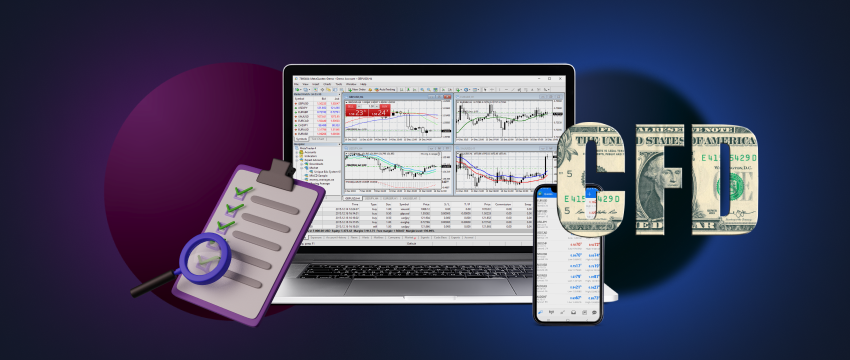
CFDs or futures trading: which is better?
The decision between CFDs and futures is influenced by your trading goals, timeframe, and level of risk tolerance as every instrument has a distinct set of advantages of its own. CFDs might be more appealing to speculators and short-term traders.
The main purposes of CFDs are short-term trading and price movement speculation. They make it possible for traders to trade on margin, which increases the possibility of both gains and losses. CFDs offer the flexibility to close positions whenever you choose because they don’t have a set expiration date.
For long-term traders and those wishing to hedge their positions, futures contracts are a better fit. When holding positions for longer periods of time, the costs related to trading futures are typically lower than those of trading CFDs. Nevertheless, there is a restricted selection of markets.
Trading CFDs on futures with T4Trade
You can trade CFDs on spot or futures prices with T4Trade. When you trade CFDs on futures, you can gain exposure to the futures market without having to worry about any of the other details or take on any obligations related to futures trading.
Additionally, you can speculate on bullish or bearish conditions in the underlying market by trading futures prices with CFDs. This is so that you can “sell” to go short when you believe futures prices will decline, and “buy” to go long when you believe they will rise.
At T4Trade you can trade CFDs on commodity futures such as natural gas, wheat, corn, and crude oil, currency futures such as the euro and the British pound, futures on stock indexes such as the S&P 500 Index, futures on U.S. Treasury bonds and related products as well as futures on precious metals such as gold and silver. Create a trading account with T4Trade to trade futures with fast execution and no requotes.
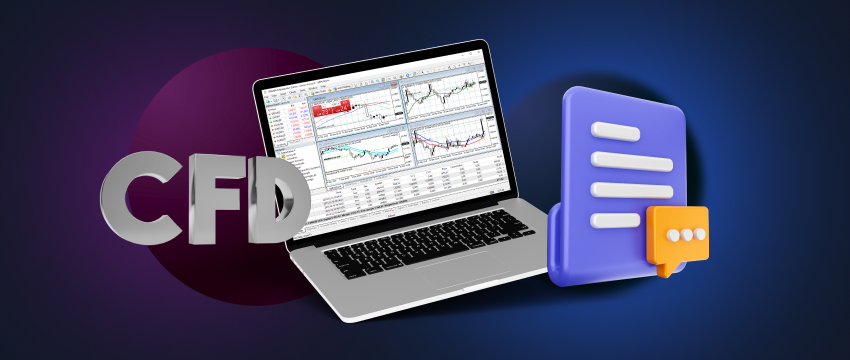
Advantages of futures & CFDs
It’s important to be cautious when deciding which financial product is best for you because both futures and CFDs have a lot of advantages as well as disadvantages. Here are some things to think about:
CFDs
- A product with a lot of similarities to its target market
- Trade bonds, forex currencies, indexes, and ETFs in addition to stocks and ETFs
- Exchange goods in adjustable sizes
- Not concerned about expirations
Futures
- Engage in exchange-based trading
- Concentrate on bonds, indices, currencies, or commodities
- Standardised sizes of contracts Open a longer-term position
Disclaimer: This material is for general informational and educational purposes only and should not be considered investment advice or an investment recommendation. T4Trade is not responsible for any data provided by third parties referenced or hyperlinked in this communication.
